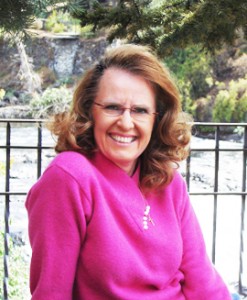 The following is an excerpt from Supporting Maltreated Children by Dr. Bruce Perry, M.D., Ph.D.
The following is an excerpt from Supporting Maltreated Children by Dr. Bruce Perry, M.D., Ph.D.
Helping Maltreated Children
Responsive adults—parents, teachers, and other caregivers—make all the difference in the lives of maltreated children, so:
Nurture these children. They need to be held, rocked, and cuddled. But be aware that, for many children, touch has been associated with pain, torture, or sexual abuse. Observe how your child responds to nurturing and act accordingly. In many ways, you are providing experiences that should have taken place during infancy.
Try to understand the behaviors before punishing a child. The more you can learn about attachment problems, bonding, and development, the more you will be able to develop useful interventions. If your child hoards food, for example, do not accuse him of stealing. A punitive approach may increase the child’s sense of insecurity and need to hoard food.
Interact with children at their emotional age. Abused and neglected children are often emotionally and socially delayed. When they are frustrated or fearful, they will regress, and as much as you want the children to “act their age,” they simply cannot.
Interact at their emotional level. If they are tearful, frustrated, or overwhelmed (emotionally age two), use soothing non-verbal interactions. Hold them. Rock them. Sing quietly.
Be consistent, predictable and repetitive. Maltreated children with attachment problems are very sensitive to new situations. Social events (parties, sleepovers, trips) can overwhelm them, even if they are pleasant. Efforts to make life consistent, predictable, and repetitive are very important. When children feel safe, they can benefit from the nurturing and enriching experiences you provide.
Model and teach appropriate social behaviors. Many abused and neglected children do not know how to interact with others. To teach them, model behaviors and narrate for the child what you are doing and why: “I am going to the sink to wash my hands before dinner because…” or “I take the soap and put it on my hands like this….”
You can even coach maltreated children as they play with other children. Use play-by-play: “Well, when you take that from someone, they probably feel pretty upset; so if you want them to have fun when you play this game, then you should try…” Over time, success with other children will make the child less socially awkward and aggressive.
Maltreated children can have problems modulating physical contact. They don’t know when to hug, how close to stand, when to make/break eye contact, or at what times they can wipe their nose, touch their genitals, or do grooming tasks. Do not lecture the child about “appropriate behavior;” gently suggest how she can interact differently with adults and children (“Why don’t you sit over here?”). Make lessons clear using as few words as possible, and explain in a way that will not make the child feel bad or guilty.
Listen to and talk with your children. Whenever you can, sit, listen, and play with your children. When you are quiet and interactive with them, they often will begin to show and tell you what is really inside them. Practice this—slow down, quit worrying about the next task, and really relax into the moment with a child.
At these moments, teach children about their feelings. Use the following principles: (1) All feelings (sad, glad, mad, etc.) are okay to feel; (2) Children should know healthy ways to act when sad, glad, or mad; (3) Other people feel and show feelings—“How do you think Bobby feels when you push him?” (4) When you sense that the child is clearly happy, sad, or mad, ask them how they are feeling.
Have realistic expectations. Abused and neglected children have a lot to overcome. We cannot predict potential, but we do know how to measure a child’s emotional, behavioral, social, and physical strengths and weaknesses. Skilled clinicians can help to define a child’s skill areas and areas where progress will be slower.
Be patient with the child’s progress and with yourself. Progress will be slow, and frustrating. Many adults, especially adoptive parents, will feel inadequate because all the love, time, and effort they exert on their child’s behalf may not seem to work. But it does. It just takes time.
Take care of yourself. Caring for maltreated children can be exhausting and demoralizing. Adults cannot provide the consistent, predictable, enriching, and nurturing care these children need if they are depleted; they must get rest and support. Respite care can be crucial for parents, who should also rely on friends, family, and community resources.
Investigate other resources. Many communities have support groups for adoptive or foster families. Professionals who specialize in attachment problems can also help. Remember, the earlier and more aggressive the interventions, the better children will be able to heal and thrive.
As the adoptive mom of 2 highly abused and neglected sons, I have experienced an array of behaviors associated with their being maltreated. These suggestions have been extremely helpful in relating to my sons, even though they are now 17 and 18 years old. When I first read the article, my reaction was one of regret. I wish I had known these things sooner, when they were younger. After acknowledging my regret and guilt, I allowed myself to see how these tips could be of benefit to my family now. Adoptive parents strive to do what is best for their children, but are not always equipped with the most effective tools at the time. We do our best at the time, but allow self- doubt and feelings of inadequacy to creep in. As the tip says, be patient with your children and yourself. The lessons we learn from our experiences, regardless of the outcome, are always valuable.
Lynn Cooper


